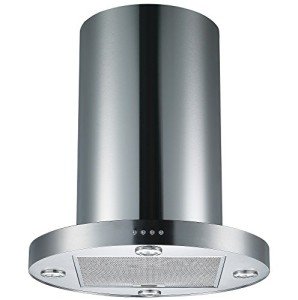See What Kitchen Island Cooker Hood Tricks The Celebs Are Making Use OвА¶
л≥ЄлђЄ
The Comprehensive Guide to Kitchen Island Cooker Hoods
When creating or refurbishing a kitchen, the option of appliances and fixtures is vital in attaining both performance and aesthetics. Amongst these aspects, the kitchen island cooker hood plays a critical role in ensuring a clean and pleasant cooking environment. This short article looks into the advantages, types, installation factors to consider, and maintenance suggestions for kitchen island cooker hoods.
Comprehending Kitchen Island Cooker Hoods
A kitchen island cooker hood, likewise called a vent hood, is a ventilation device installed above a kitchen island cooktop. Its main function is to eliminate smoke, steam, grease, and smells produced during cooking. Modern kitchen island hoods not just provide functionality however also include an unique visual component to the kitchen design.

The Importance of a Cooker Hood
The need of a kitchen island cooker hood can not be overemphasized. Here are a number of benefits:
- Air Quality Improvement: The primary benefit of a cooker hood is improving indoor air quality by effectively removing impurities from the kitchen environment.
- Smell Reduction: By getting rid of cooking odors, it assists maintain a fresh environment in the home.
- Protection of Kitchen Surfaces: cooker hood for island hoods lower grease accumulation on cabinets, walls, and other surface areas, extending their life-span and maintaining their look.
- Boosted Cooking Experience: A well-ventilated kitchen permits a more enjoyable cooking experience, specifically in open-concept areas where the kitchen integrates with living locations.
Types of Kitchen Island Cooker Hoods
Kitchen island cooker hoods can be found in different styles and types, dealing with various kitchen designs and personal preferences. The following are the most common:
| Type | Description |
|---|---|
| Canopy Hoods | Wall-mounted and utilized over island extractor fan a kitchen island; generally ducted for improved ventilation. |
| Downdraft Hoods | Integrated into the cooktop, these hoods rise when in usage and withdraw when not, saving area. |
| Chimney Hoods | Standalone systems that have a chimney-like structure; they can be ducted or recirculated. |
| Island Range Hoods | Particularly developed for island chimney hood installations, these hoods are powerful and frequently include a sleek style. |
| Professional-Grade Hoods | High-performance designs typically utilized in industrial cooking areas; they require professional setup and may be ducted outside. |
Picking the Right Hood
When selecting the appropriate kitchen island cooker hood, think about the list below elements:
- Size: The size of the hood ought to match or exceed the measurements of the cooking surface.
- Suction Power: Measured in CFM (Cubic Feet per Minute), greater CFM ratings show better suction abilities. A variety of 300-1200 CFM prevails depending on cooking habits.
- Noise Levels: Look for designs that use quieter operation; hoods with lower sones (a measure of volume) can supply a more pleasant cooking experience.
- Aesthetic Appeal: Choose a style and finish that complements your kitchen style, whether modern-day, traditional, or commercial.
- Ducted vs. Ductless: Ducted hoods vent outside, while ductless models filter air and recirculate it. Determine which is best for your kitchen layout.
Installation Considerations
The installation of a kitchen island cooker hood involves numerous critical steps:
- Location: The hood must be focused above the cooktop, typically 30 to 36 inches above the range.
- Ductwork: For ducted hoods, prepare the essential ductwork for correct ventilation. This might include cutting holes through walls or ceilings.
- Support Structure: Ensure that the ceiling can support the weight of the hood; extra bracing might be required.
- Electrical Supply: Most hoods require an electrical connection; strategy for the required wiring.
House owners can choose professional setup to make sure all guidelines and security standards are satisfied.
Upkeep and Cleaning
To keep the effectiveness and appearance of kitchen island cooker hoods, routine maintenance is necessary. Below are some upkeep tips:
- Wash Filters Regularly: Depending on usage, clean or replace grease filters every one to three months. Many are dishwasher-safe.
- Wipe Down Surfaces: Regularly clean the outside surface areas of the hood with a non-abrasive cleaner to avoid grease accumulation.
- Inspect Ducts: For ducted hoods, inspect ductwork every year to guarantee it's clear of clogs.
- Light Maintenance: If the hood has integrated lighting, change bulbs as essential.
Often Asked Questions (FAQs)
1. How do I identify the size of the hood I need?
To determine the appropriate size, the hood should be at least as large as the cooktop; for island hob optimum protection, it's advised that the hood extends about 3 inches on each side.
2. Can I set up a ductless hood in a kitchen without external venting?
Yes, ductless hoods filter air through charcoal filters and recirculate it back into the kitchen, making them suitable for spaces without external venting.
3. Are there energy-efficient choices for kitchen island cooker hoods?
Yes, lots of brands use energy-efficient models equipped with LED lighting and energy-saving features, contributing to lowered energy usage.
4. How often should I change the filters?
Depending upon usage, grease filters should be changed or cleaned on a monthly basis, while charcoal filters (for ductless hoods) usually need replacement every six months.
A kitchen island cooker hood is a central aspect in modern kitchens, supplying important ventilation while enhancing aesthetics. With different styles, performance, and installation considerations, picking the best hood requires comprehensive evaluation of private needs. By devoting to routine maintenance and appropriate care, homeowners can enjoy a cleaner, fresher kitchen environment for years to come.

лМУкЄАл™©л°Э0
лМУкЄА нПђмЭЄнКЄ мХИлВі